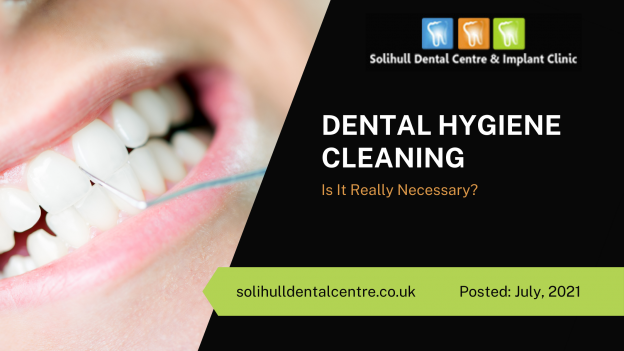Our mouth is the gateway to our entire body. Anything we eat or drink first goes through it and then passes to the rest of the body. If there is an infection inside the oral cavity, it can travel along with the food we eat and the air we breathe – even through the bloodstream – and cause serious, even life-threatening medical complications. That is why the American Dental Association emphasizes taking good care of our oral hygiene.
While brushing and flossing and excellent for keeping our teeth and gums clean, these measures are sometimes not enough to prevent gum and periodontal issues. This is where professional dental cleaning becomes important. The National Health Service recommends visiting your dentist for a health checkup based on your oral health risk status. For individuals with low oral health risks, visiting their dentist once or twice a month should be enough. However, more frequent checkup visits are needed for high-risk individuals.
What Is The Dental Hygiene Cleaning Appointment?
During a professional cleaning appointment, also known as a scale and polish procedure, your dentist will remove the plaque and tartar deposits from your teeth and below the gumline. Both plaque and tartar offer an ideal environment for the harmful bacteria which utilise sugars from the food debris and release toxins that damage the gum tissues and jawbone.
Your dentist will use an ultrasonic scaler, whose tip vibrates at a very high frequency to break away the adherent plaque and tartar deposits from your teeth to stop the further progression of periodontal inflammation. Before starting the procedure, your dentist or dental hygienist will apply a topic anaesthetic agent over your gums so that you don’t feel any pain while your teeth are being cleaned.
How To Turn Around Personal Dental Hygiene?
The American Dental Association offers the following tips to up your oral hygiene game:
- Brushing and Flossing – the importance of brushing your teeth twice daily, and flossing at least once a day cannot be overstated, as these measures are your first line of defence against tooth decay, tartar buildup and gum inflammation. Dental experts recommend brushing your teeth for at least two minutes, using a soft-bristled toothbrush and fluoride-containing toothpaste.
- Tooth-friendly Diet – a diet rich in green vegetables, fruits, essential nutrients and fibre-containing foods not only makes your teeth stronger but also prevents gum disease and other dental complications.
- Fluoride Mouthwash – a fluoride mouth wash is helpful in neutralising the harmful bacterial and making our teeth more resistant to teeth cavities.
- Additional Oral Health Care Products – adding an interdental brush to your oral hygiene routine will go a long way in making sure you maintain healthy teeth and gums. This is because an interdental brush is helpful in removing food debris from tight spaces between the teeth where the bristles of a regular toothbrush cannot penetrate effectively. Alternatively, you may use a Waterpik for interdental cleaning.
Should We Go For Teeth Cleaning?
Many people believe that teeth cleaning can make their teeth sensitive or weak. This assumption is not true. Professional teeth cleaning is a safe procedure, provided it is performed by a qualified and experienced dentist or dental hygienist. In fact, it is an excellent preventive procedure to minimise the chances of developing periodontal inflammation. So, in short, yes; you should go for teeth cleaning according to your dentist’s recommended schedule.
What Is Fluoride On The Teeth Treatment At The Dentist?
Fluoride is a mineral that possesses antibacterial and tooth-strengthening capability. Research has shown that fluoride products, whether in the form of water fluoridation, food supplements or professional application using fluoride varnishes and gels is effective in killing harmful bacteria that cause teeth cavities and gum problems. Besides, fluoride ions penetrate into the deeper layers of our teeth and replenish the lost mineral content, making them stronger and more resistant against decay.
If your dentist feels that your teeth are at a higher risk of developing gum problems or caries, they will recommend fluoride application. Professional fluoride application is performed using custom trays. Your dentist will fill the trays, one for each jaw, with the fluoride gel and ask you to wear it for a certain period of time.
Is Dentist Fluoride Treatment Necessary?
Most US states perform water fluoridation to prevent dental problems. Furthermore, our diet also contains fluoride in sufficient quantities. Therefore, professional fluoride treatment is not necessary for everyone. Your dentist will determine your need for fluoride therapy based on your oral health status.
Do Dentists Recommend Electric Toothbrushes?
According to the American Dental Association, both manual and electric toothbrushes are effective in achieving optimal dental cleaning, provided they are used properly. Hence, the use of electric toothbrushes is more of a preference than a necessity. However, electric toothbrushes might be a suitable option with physical or mental disabilities, or those who lack the manual dexterity to use the regular toothbrush.
How To Know The Right Toothbrush Bristles To Choose?
Many people think that using hard-bristled toothbrushes offer superior teeth cleaning. This is not true. In fact, hard toothbrush bristles can cause tooth wear and gum recession. Dental experts recommend using a toothbrush with soft bristles. Soft bristles not only prevent gum recession but also stimulate the gums mildly, thereby improving your overall periodontal health.
What Is The Correct Way To Use A Toothbrush?
Always use a toothbrush that carries the seal of approval of your local or federal dental regulatory authority. Choose a toothbrush that has a head wide enough to allow you to insert and remove it from your mouth easily.
While brushing, hold your toothbrush so that the bristles are angled at 45-degrees with respect to the long axis of the teeth. Start by brushing the front surfaces of your teeth in an up-and-down fashion, making sure to clean each tooth quadrant for at least 30 seconds. Afterwards, do the same for the back surfaces of the teeth while making sure not to ingest the toothpaste. Once you’re done, spit out the excess toothpaste and rinse your mouth with water.
If you are looking for a family dental practice in Solihull, look no more. At Soihull Dental Centre and Implant clinic, we have the expertise and facilities to look after the oral health of your entire family. So, book an appointment with us today and let us give you a lasting and beautiful smile.



